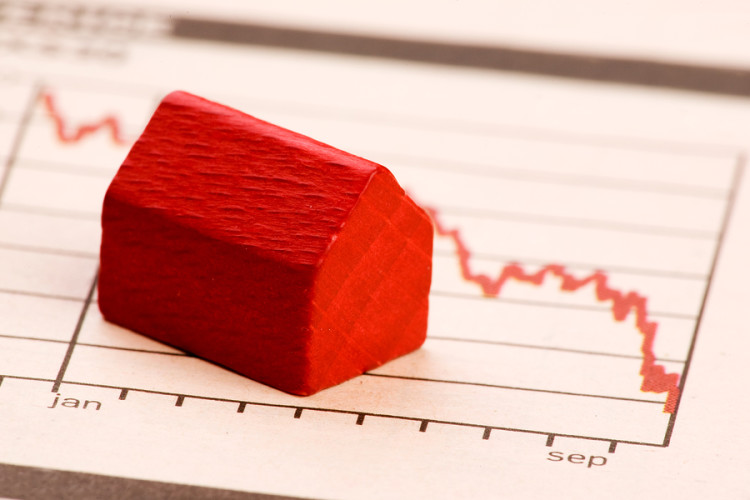An Early Warning Sign for the World’s Priciest Homes Is Flashing Sell

published Oct 5, 2018 3:46:15 AM, by Kana Nishizawa
(Bloomberg) —
A reliable leading indicator for the world’s least affordable housing market is sending a sell signal for the first time in three years.
Losses in the Hang Seng Properties Index on Thursday left the gauge of Hong Kong real estate stocks trading as much as 20 percent below its peak in January. Declines of that magnitude from major highs have preceded the last four downturns in Hong Kong home prices, data compiled by Bloomberg show.
Hong Kong real estate stocks are sinking as borrowing costs rise from rock-bottom levels, the U.S.-China trade war heats up and investors question the sustainability of home values that cost nearly 20 times the median pretax household income. The former British colony, one of the planet’s most densely populated places, has led a global surge in property prices in recent years that shows increasing signs of reversing in major cities from London to New York.
“Stocks pretty much always peak and bottom before physical properties” in part because the equity market is more liquid, said Peter Churchouse, chairman at Portwood Capital and a board member of Hong Kong-listed property companies Hysan Development Co. and Longfor Group Holdings Ltd. “History is telling us something here.”
The Hang Seng property stock index extended losses on Friday, sliding 0.2 percent at the close in Hong Kong.
More affordable home prices may come as a relief to Hong Kong authorities who’ve introduced several market cooling measures in recent years, but any downturn would also pose risks for a city where the household debt-to-gross domestic product ratio climbed to a record in the second quarter. A sustained drop in property values would likely weigh on economic growth, raise the risk of defaults and put Hong Kong’s massive banking system to the test.
Read more: Hong Kong Banks, Developers Offer Sweeteners After Rate Increase
Churchouse says home prices may be on the cusp of falling as much as 20 percent. That would be the biggest slump since a 23 percent drop during the global financial crisis in 2008, according to a widely followed home-price index compiled by Centaline Property Agency.
Centaline’s index, which has climbed 229 percent from its post-crisis low, experienced several slumps in the interim: a roughly 6 percent drop that began in June 2011, a 5 percent slide in 2013 and a 13 percent retreat in 2015. The gauge is now sitting about 1 percent below its record high reached in mid-August.
While not all forecasters are quite as pessimistic as Churchouse, a growing number of market observers have been predicting a slump in Hong Kong home values. S&P Global Ratings warned last week of a 5 to 10 percent drop over the next 12 months. Gaw Capital Partners, a Hong Kong-based private equity firm that recently purchased a portfolio of shopping malls in the city, has said a 15 percent correction is possible in the first half of 2019.
One recent development that adds to signs of a tipping point: Hong Kong banks last week raised their so-called prime rates for the first time in more than 12 years, boosting mortgage costs for thousands of the city’s homeowners.
Further hikes are likely as the U.S. Federal Reserve normalizes monetary policy. Because Hong Kong’s currency is linked to the dollar, the Asian financial hub’s borrowing costs are closely aligned with those in America.
“The upside in the property market has exceeded everyone’s expectations and I would say that there’s also a high chance that the downside would exceed expectations as well,” said Phillip Zhong, a Hong Kong-based equity analyst at Morningstar Investment. “This has been priced into the shares — but the question is: has the real estate price reflected that risk? Clearly it hasn’t.”



No Comment